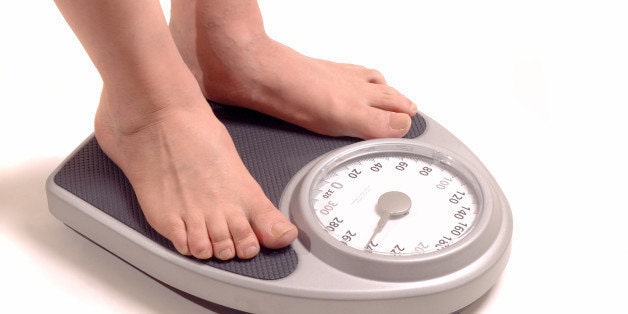Table of Contents

Keto diet can help you to lose weight, more specifically fat, but it can also lead to weight gain. The standard keto diet is eighty percent of calories consumed in the form of healthy fats, fifteen percent is lean proteins and five percent is simple carbohydrates. The objective of the diet is to switch the body into a phase known as ketosis. This is a process wherein the body uses fat as the primary source of energy, not carbohydrates or glucose. Ketosis triggers fat burning and hence leads to weight loss. Keto diet is effective only when the fats consumed are healthy. One cannot eat any type of fat as it will only do more harm than good.
Keto Diet and Weight Gain
Keto diet should not lead to weight gain if you think about the effects on the body. If you are losing fat, then you are losing weight. Unless you are gaining fat or muscle, you cannot put on weight. Since keto diet transforms your body into a fat burning machine, it seems unlikely there will be net weight gain during the course of the diet or immediately after. However, keto diet can lead to weight gain if you slightly tweak the standard approach.
The body will continue to use fat as its primary source of energy. Increasing the protein intake nominally will provide your body more amino acids and this will lead to developing lean mass. No one wants to gain weight in the form of fat. Everyone wants to have larger and stronger muscles. However, normal muscle development invariably has some fat gain. The objective should be to develop lean mass. This is what keto diet can do and in effect lead to a net weight gain. It is not possible to bulk up enormously with keto diet. That will require consuming a lot more protein than what is permissible in a keto diet.
The Right Keto Diet for Weight Gain
You should increase the proportion of protein while slightly increasing the quantum of calories you consume every day. Let us presume you need fifteen hundred calories to continue losing weight with keto diet. Eighty percent of it should be fat, fifteen percent of it should be protein and five percent should be carbohydrate. Increase the protein intake by another two to three percent. You can reduce the fat intake by the same proportion. You may also reduce the carbohydrate intake while keeping the fat intake unchanged. This will keep your body in the ketosis phase, you shall continue to use fat as the primary fuel or source of energy and the extra proteins will be converted to lean mass. Do not skip carbohydrate entirely as then protein synthesis would not happen in your body. Hence, you will not develop new tissues in the muscles.
If fifteen hundred calories is what you need to continue losing weight, you should increase the calorie intake by a hundred up to two hundred. Do not increase the calorie intake by five hundred. You would stop losing weight. Fat burning may stop as the body will no longer be calorie deficit. The extra hundred or two hundred calories can be entirely protein. This means you do not have to alter the proportions of fat, protein and carbohydrate as per the requirements in the original keto diet for fifteen hundred. You can simply add more protein for the extra calories you need to gain weight.
The approach should not be random or abstract. The optimal protein intake is 0.8g to 1.0g per pound of lean body mass. If you take less than 0.5g per pound of lean body mass every day, then your muscles will grow smaller and weaker. 0.6g to 0.8g of protein per pound of lean body mass is necessary to maintain your muscles. 1g is ideal to gain some mass. Do not consume any more than that as the excess protein will be wasted. The protein will get converted to glucose and the body may store it or get rid of it depending on your workout routine.
Weight gain with keto diet is slow, incremental and healthy. You will not put on five pounds in a fortnight. Whatever you put on using the above approach will be lean and healthy mass, thus not affecting your fat loss goals.

